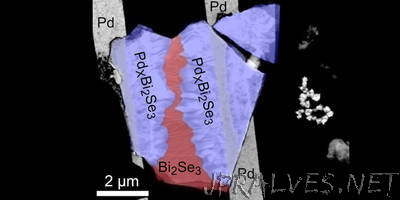
“Researchers from the University of Pennsylvania, in collaboration with Johns Hopkins University and Goucher College, have discovered a new topological material which may enable fault-tolerant quantum computing. It is a form of computing that taps into the power of atoms and subatomic phenomena to perform calculations significantly faster than current computers and could potentially lead to advances in drug development and other complex systems. The research, published in ACS Nano, was led by Jerome Mlack, a postdoctoral researcher in the Department of Physics & Astronomy in Penn’s School of Arts & Sciences, and his mentors Nina Marković, now an associate professor at Goucher, and Marija Drndić, Fay R. and Eugene L. Langberg Professor of Physics at Penn. Penn grad students Gopinath Danda and Sarah Friedensen, who received an NSF fellowship for this work, and Johns Hopkins Associate Research Professor Natalia Drichko and postdoc Atikur Rahman, now an assistant professor at the Indian Institute of Science Education and Research, Pune, also contributed to the study. The research began while Mlack was a Ph.D. candidate at Johns Hopkins. He and other researchers were working on growing and making devices out of topological insulators, a type of material that doesn’t conduct current through the bulk of the material but can carry current along its surface. As the researchers were working with these materials, one of their devices blew up, similar to what would happen with a short circuit.”
